

Did you know that cybersecurity education is transforming at a frenetic pace, revealing more than just technical skills? The layers beneath promise secrets that could change career trajectories forever.
With the rising tide of cyber threats, understanding cybersecurity isn't just a professional advantage — it’s a global imperative. More people are enrolling in cybersecurity courses now than ever before.

Recent studies show that students who dive into cybersecurity educational programs often start with more traditional IT roles. Surprisingly, many experienced mentors argue that the content of these courses isn't just about algorithms or firewalls. Instead, the curriculum dives deeply into the psychology of hackers, social engineering tactics, and the nuances of digital forensics. But that’s not even the wildest part…
Common misconception? Cybersecurity education is solely for technical wizards. On the contrary, today’s courses teach a broader array of skills that appeal to business minds and creative thinkers alike. What’s shocking is how these skills not only enhance computer defense strategies but also foster developments in innovative tech solutions. But what happens when these areas overlap? The possibilities are astonishing. And that’s just scratching the surface…
Ready to uncover what’s truly beneath the surface of cybersecurity education? What happens next shocked even the experts. The revelations in store demand a deeper exploration, one that pierces the sanitized layers and lays bare the true power of knowledge in this exciting field.
Chances are, when you think of cybersecurity courses, you envision hours of coding or hacking simulations. But what if I told you the most transformative lessons lie elsewhere? A surprising focus on interpersonal skills has emerged. Companies need protégés who understand not just systems, but people — making this aspect of education invaluable.
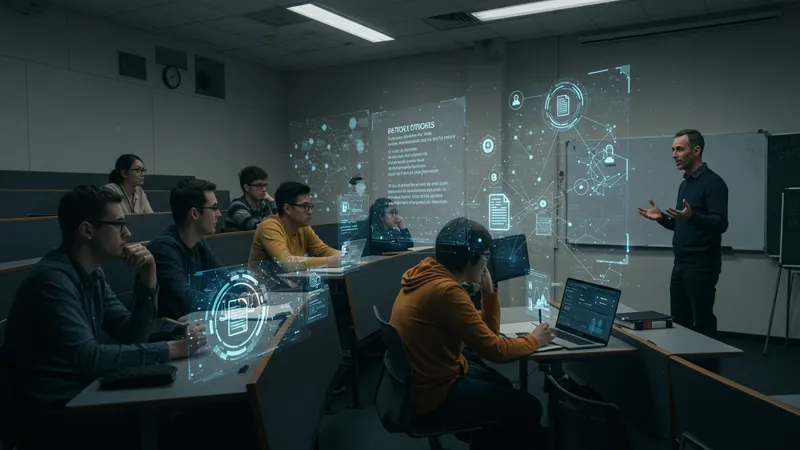
Now here’s where it gets even more unexpected: many courses emphasize legal aspects and regulations surrounding data protection. Knowing what keeps a company on the right side of the law isn’t an IT-centric skill, but it’s now a pivotal part of cybersecurity studies. This is all new territory for students who might have never considered the legal industry within this technical pursuit.
Moreover, such courses also extend into risk management, where students learn how to assess potential cyber threats realistically. It’s not just about prevention; it’s about strategic anticipation. This opens an entirely new dimension of strategic planning and business foresight for learners.
But there’s one more twist: the intertwined nature of cybersecurity with fields like artificial intelligence and blockchain technology. What comes next in these courses might just redefine digital security as we know it. A deeper insight you won't want to miss…
It’s common to think cybersecurity jobs start and end within the confines of IT departments. Yet, there’s an unexpected twist in play: these roles are infiltrating C-suites. As security becomes a boardroom topic, professionals with these skills are taking on leadership roles and shaping company strategies at the highest levels.

The dynamics are changing so rapidly that traditional tech-centric positions now open doors to roles in marketing, human resources, and even the arts. The reason? Comprehensive cybersecurity training nurtures decision-making and creative problem-solving skills.
There’s another surprising ripple effect: competitive salary increases. On average, cybersecurity professionals see salary bumps of about 7% annually, a stark contrast to many other tech fields. It’s an enticing perk many never anticipated when enrolling in courses.
Hold on, because the implications reach even further: the entrepreneurial landscape is booming with cybersecurity start-ups. With a blend of newly acquired tech, regulatory, and creative skills, graduates often launch ventures that offer fresh takes on digital defense. What you read next might change how you see this forever.
Certifications have long been the backbone in IT, but in cybersecurity, they carry an almost mystical weight. One might assume a degree is sufficient, but here’s the plot twist: global companies are increasingly favoring certifications, like CISSP or CEH, over traditional diplomas.

Some certifications are so revered that they lead to immediate promotions, or even new job offers. Professionals with advanced certifications often jump into specialized roles that promise not just better pay, but a chance to influence policy and innovation.
What’s truly surprising is the networking power these certifications wield. Some programs, particularly those linked with international organizations, open channels to exclusive circles of top-tier professionals and undisclosed conferences.
But the ultimate revelation? Many credit these certifications with personal growth that transcends their career. They foster a mindset of perpetual learning and detail-oriented thinking. The path you might embark upon could redefine your professional life in ways unimaginable. Are you ready for the next surprise?
You might assume the primary cost of cybersecurity education lies in tuition fees, right? But wait, there’s more to consider. The hidden costs can sneak up on you — from incidental certifications and software licenses to the time investment that could impact your day job.

Several students report unexpected expenses related to necessary hardware upgrades or specialized tools. These indirect costs often catch novices off guard, leading to financial strain if not anticipated early.
Another surprise lies in the emotional and mental toll. The weight of constantly evolving threats can lead to significant stress and burnout, a factor often glossed over in the promotional material. Awareness of this unseen burden is critical for aspiring professionals.
Yet, with these challenges comes resilience. Those who make it through attest to an unmatched sense of fulfillment and readiness for any digital storm that comes their way. What’s around the corner might still surprise you. Stay with us...
You don't have to be a professional to benefit from cybersecurity knowledge. The fundamentals taught in these courses empower everyday users to shield their personal lives from cyber threats. And here’s a bombshell: these skills could protect you from identity theft or financial fraud.
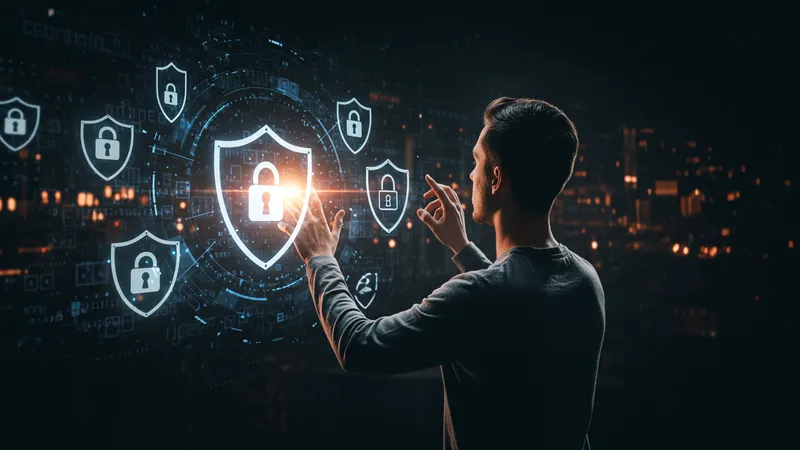
Many courses are designed with the layperson in mind, breaking down complex security concepts into practical advice. This knowledge makes users less susceptible to common traps like phishing or malware, a benefit widely underestimated.
By learning to assess risks, ordinary users are not only safeguarding personal data but are also enhancing public awareness. They become ambassadors of digital literacy, works many hadn’t previously considered possible.
But it doesn't end there. As people grow more competent, they contribute to a more secure online environment. Imagine the potential of widespread cybersecurity knowledge in combating global cybercrime. How the world uses this power next will defy expectations...
Cybersecurity influences global markets more than you might believe. It ensures the integrity of financial systems, one of the pillars of global economics. In fact, failures in cybersecurity have led to stock market disruptions, underlining the power this field holds.
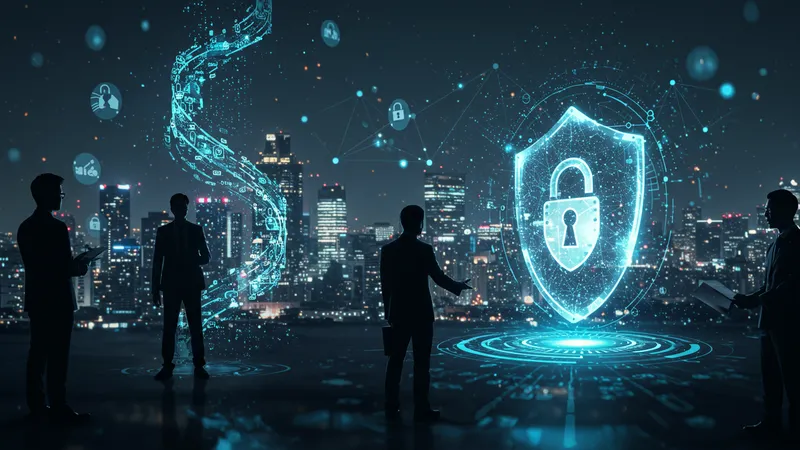
Businesses are realizing that robust cybersecurity strategies can be a competitive advantage, safeguarding customer trust and, by extension, increasing market share. Companies investing in cybersecurity education for their teams arguably perform better financially.
Countries too are pouring resources into this domain, leading to a booming demand for professionals with this expertise. The twists and turns of this developing job market could redefine national economic standings.
And yet, the global implications are just beginning to unfurl. Imagine a future where digital innovations, protected by cybersecurity, lead to advancements in intertwining fields. The possibilities are endless, and the next development might leave you in awe...
As cybersecurity becomes a universal concern, it's prompting significant cultural shifts. The once niche subject is evolving into a societal priority, reshaping how people interact, communicate, and transact online. This cultural awakening is far-reaching.
The blending of cybersecurity and daily life influences everything from childhood education to how businesses design products. Schools are weaving cybersecurity into the curriculum, preparing the next generation for digital citizenship, a move that’s breaking the traditional education mold.
On a societal level, the awareness sparks discourse on privacy and freedom of expression online. Communities are mobilizing, creating broader discussions about security, ethics, and technology usage.
But this is just the beginning. Imagine the generational impact of teaching digital responsibility from the ground up. Could this shift address broader societal challenges in new, unprecedented ways? It’s a mystery yet to unravel...
Surprisingly, the latest advancements in AI and machine learning aren’t just standalone technologies — they're pivotal to the future of cybersecurity. These tools can predict and neutralize attacks before they happen, a concept that feels straight out of science fiction.
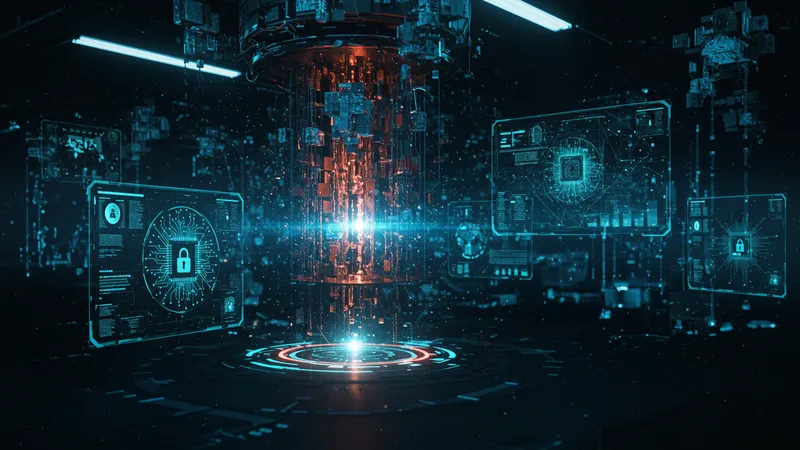
The development of quantum computing introduces a paradoxical relationship: while it poses potential threats to existing encryption, it also promises unbreakable security measures. It’s a double-edged sword with immense implications.
Blockchain technology is also playing an essential role, known for secure transactions and verifiable records. This tech cross-pollination is reshaping our understanding of what’s possible in safeguarding information.
The synergy between these technologies and cybersecurity is just beginning to unfold. The transformation they herald might redefine the future, making us question if our definition of security was ever sufficient. Brace yourself for the journey ahead...
Cybersecurity principles are being written into the very fabric of global policies. As governments grapple with ever-evolving cyber threats, a new governance era is emerging, where transparency and privacy protections are paramount.
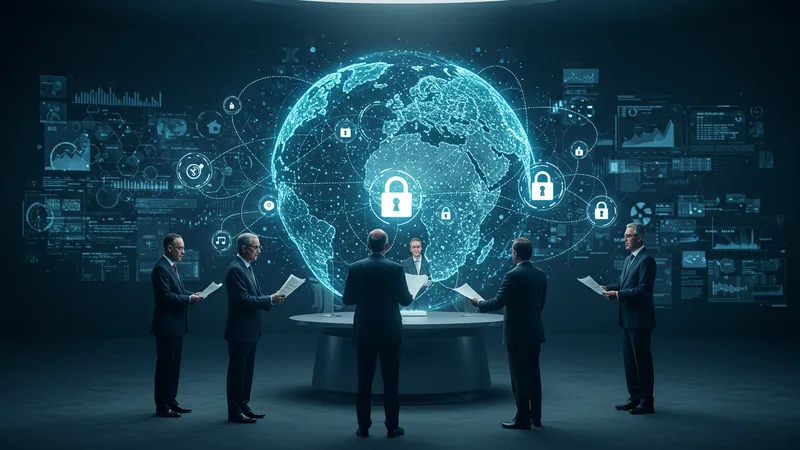
The impact extends beyond national borders, encouraging international cooperation on cybersecurity practices. These collaborations have led to shared strategies and information exchanges that increase digital resilience worldwide.
Interestingly, countries are incorporating cybersecurity into national defense strategies as a core component. This highlights the strategic importance of this field, cementing its role on the world stage.
The policy dynamics are complex, though they beg a critical question: how will nations balance security with freedom? The answers might surprise even the savviest observers. Stay tuned to see what's next...
As the pandemic accelerated remote work, cybersecurity became essential. Yet, many underestimated the challenges of maintaining secure, distributed systems. Enter education — the hero everyone needs right now, reshaping remote employees into informed guardians of corporate data.

This new work model has spurred exponential growth in course enrollments. Workers recognize that knowledge is their best defense against vulnerabilities amplified by remote connectivity.
A symbiotic relationship has developed: businesses investing in training protect their assets more effectively, while employees gain marketable skills, transforming them into high-demand professionals.
Remote work might be the future, but securing it poses unforeseen challenges. What unfolds in this realm could alter business operation models altogether. Will we keep pace with the threats on the horizon? The outcome remains to be seen...
The research world in cybersecurity is bustling with breakthroughs that seem to come from tomorrow’s world. Innovations like neuromorphic computing and bio-cyber interfaces are reshaping our framework of reality.

These developments promise unprecedented defense mechanisms, but they also usher in ethical dilemmas that researchers must navigate. How far should science go in mimicking human or biological processes? It’s a question dividing opinions.
Universities are at the forefront, creating alliances between diverse disciplines, bringing fresh ideas to a field long dominated by tech purists. Such collaborations could pave the way for next-gen solutions with far-reaching impacts.
What transpires in these labs could redefine security on a global scale. The implications might just blow your mind and change your perspective forever. Ready to unravel the mystery?
Businesses large and small encounter daily cyber threats that undermine operations. Surprisingly, even well-prepared companies fall into traps due to overlooked vulnerabilities or human error.

Implementing robust cybersecurity measures can be costly, a daunting prospect for small businesses and startups. However, awareness and education can minimize risks significantly by harnessing strategies and anticipating challenges.
Moreover, many organizations still underestimate insider threats. Employees, often unknowingly, become the loophole through which data breaches occur. Comprehensive training can turn this potential threat into a fortified advantage.
But what’s truly shocking? The sheer adaptability of cybercriminals. Their tactics evolve faster than some organizations can respond. Staying one step ahead is not just smart — it’s imperative. How we adapt will shape businesses of the future...
The gaming industry is a prime target for cybercriminals due to vast user data. Shockingly, popular platforms often experience frequent breaches, leading to massive data leaks.
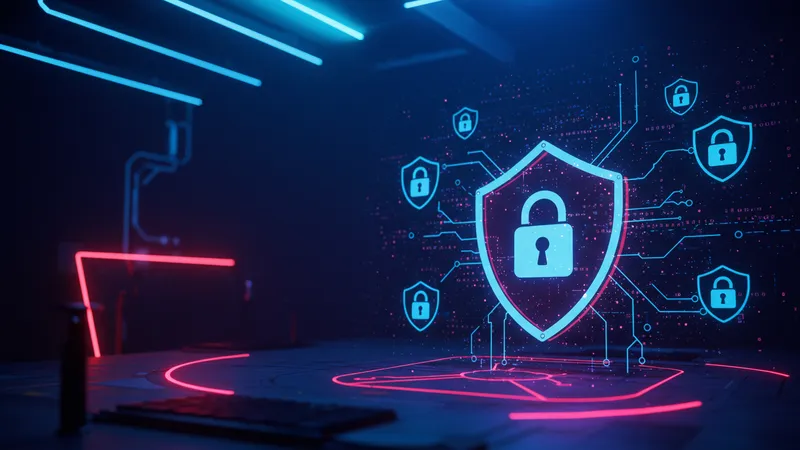
Cybersecurity education has become crucial in developing secure gaming infrastructures. Developers are integrating these lessons into their designs, safeguarding millions of players worldwide from identity theft and fraud.
Amidst these threats, a hacker culture has occasionally seeped into games themselves, exacerbating the situation. However, education and vigilant strategies can counteract these issues and promote a safer gaming environment.
But beyond security, what's next for gaming and cybersecurity could be revolutionary. How these two fields converge may unlock new realms of interactive experiences unheard of. Stay curious, because the future is coming fast...
As we've explored the labyrinth of cybersecurity education and its profound ripple effects, one thing stands clear: this field is not static but bristling with potential and implications. For those eyeing a career or everyday users wanting to safeguard their digital lives, the stakes have never been higher.
What remains invigorating about cybersecurity is its constant flux. Just as threats evolve, so too does our capacity to innovate and defend. Share this journey with others; after all, knowledge fortified with action can change the world. Take the leap, embrace the unknown, and let the future reveal its vast possibilities in cyber safety.